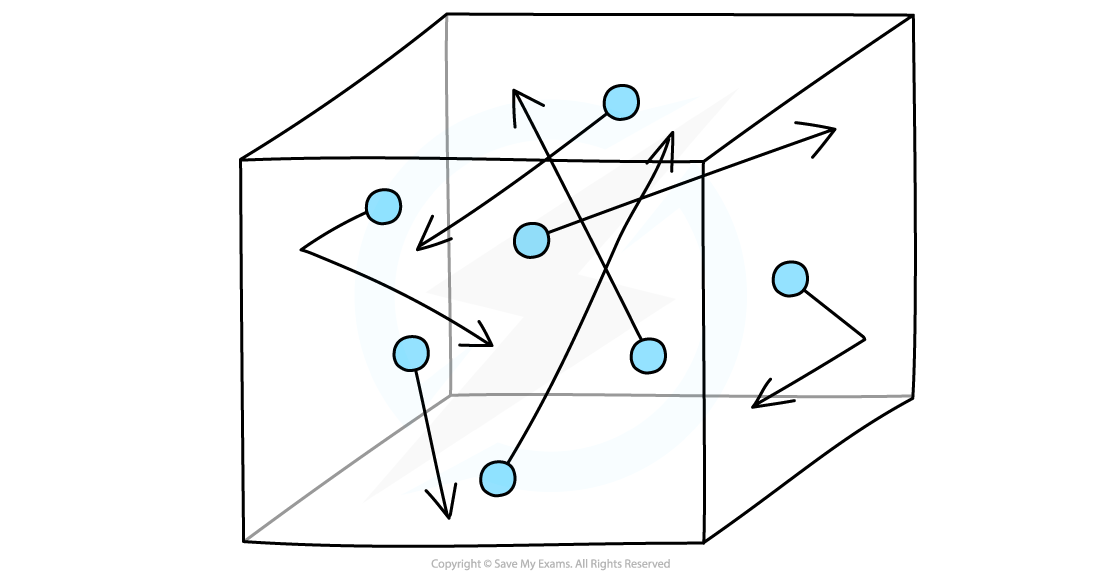Internal Energy (AQA GCSE Physics) : Revision Note
Internal Energy
Internal energy is defined as:
The total energy stored inside a system by the particles that make up the system due to their motion and positions
The molecules within a substance have energy in their:
Kinetic store (due to their random motion / vibration)
Potential store (due to their position relative to each other)
Together, these stores form the total energy that makes up the internal energy of the system

Molecules in a substance have kinetic energy since they are in motion and potential energy from their position relative to each other
Heating
Heating a system changes a substance's internal energy by increasing the kinetic energy of its particles
The temperature of the material, therefore, is related to the average kinetic energy of the molecules
The higher the temperature, the higher the kinetic energy of the molecules and vice versa
This means they move around faster
This increase in kinetic energy (and therefore internal energy) can:
Cause the temperature of the system to increase
Or, produce a change of state (solid to liquid or liquid to gas)

As the container is heated up, the gas molecules move faster with higher kinetic energy and therefore higher internal energy
Change of State
When a substance reaches a certain temperature, energy will stop being transferred to the kinetic store of the molecules and will be transferred to their potential store instead
This energy goes into overcoming the intermolecular forces of attraction between the molecules, causing them to move further apart from one another leading to a change of state
For example, liquid to gas
When a substance changes its state:
The potential energy of the molecules increases, allowing them to overcome the intermolecular forces of attraction
The kinetic energy remains the same, meaning that the temperature will remain the same, even though the substance is still being heated

An increase in internal energy from heating can cause a change of state

You've read 0 of your 5 free revision notes this week
Sign up now. It’s free!
Did this page help you?
